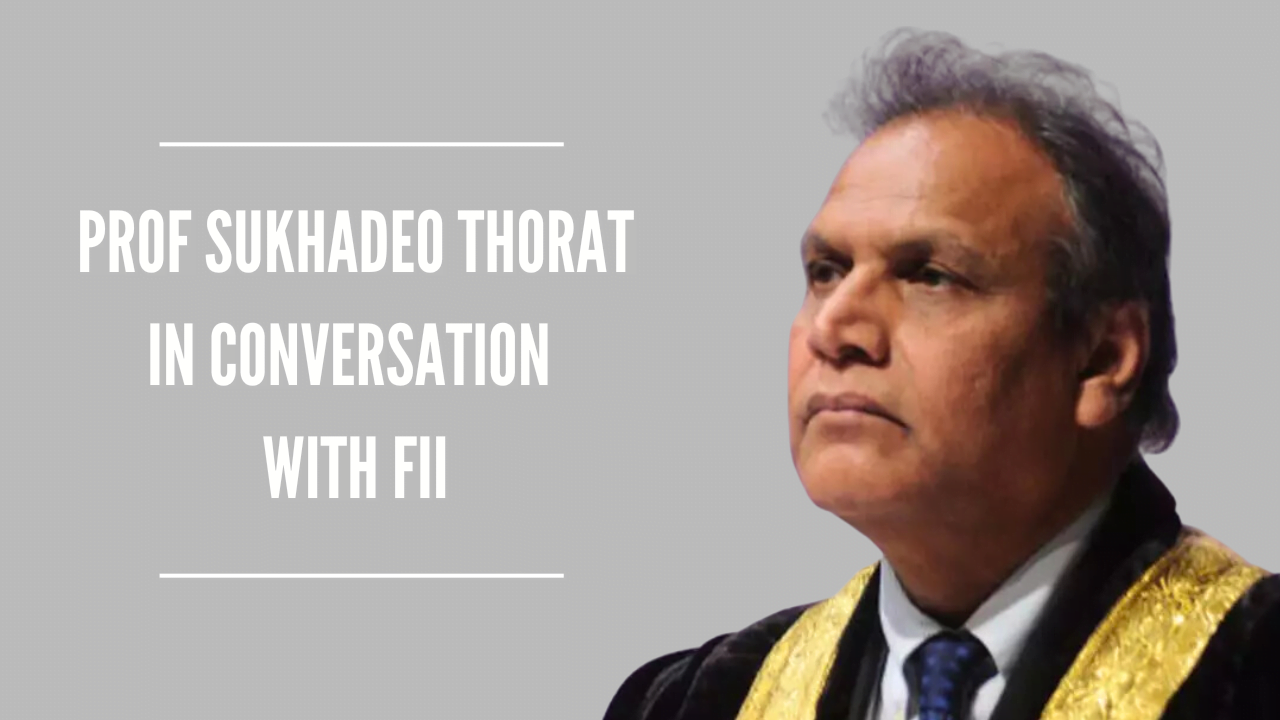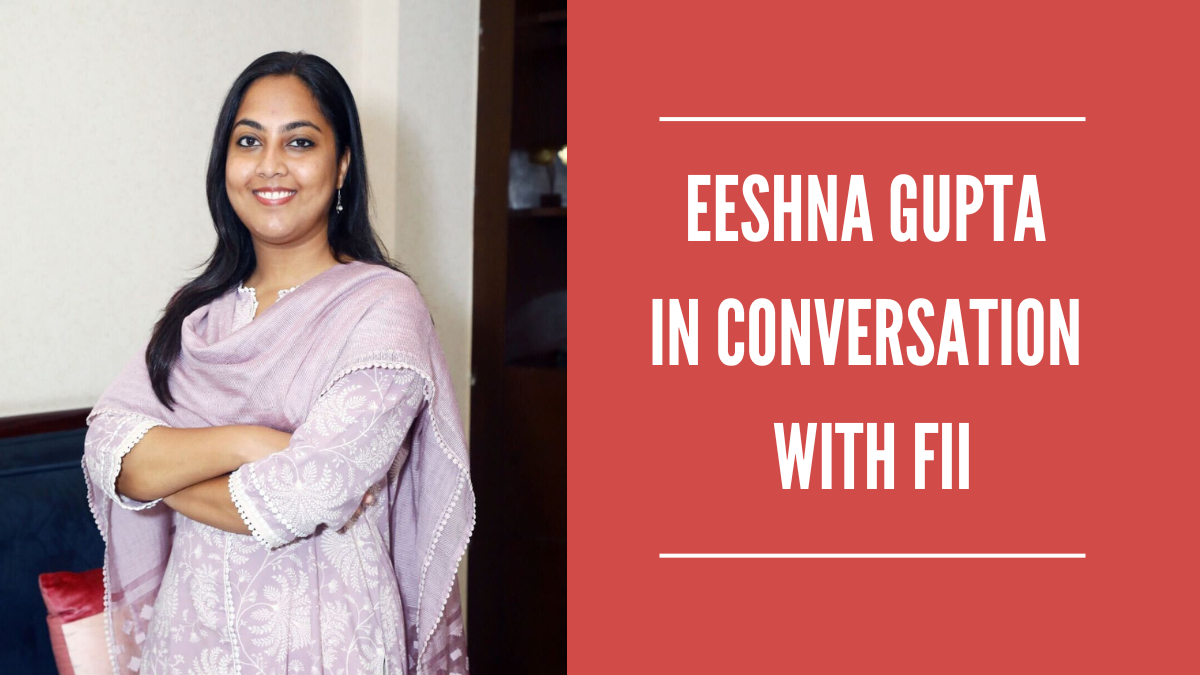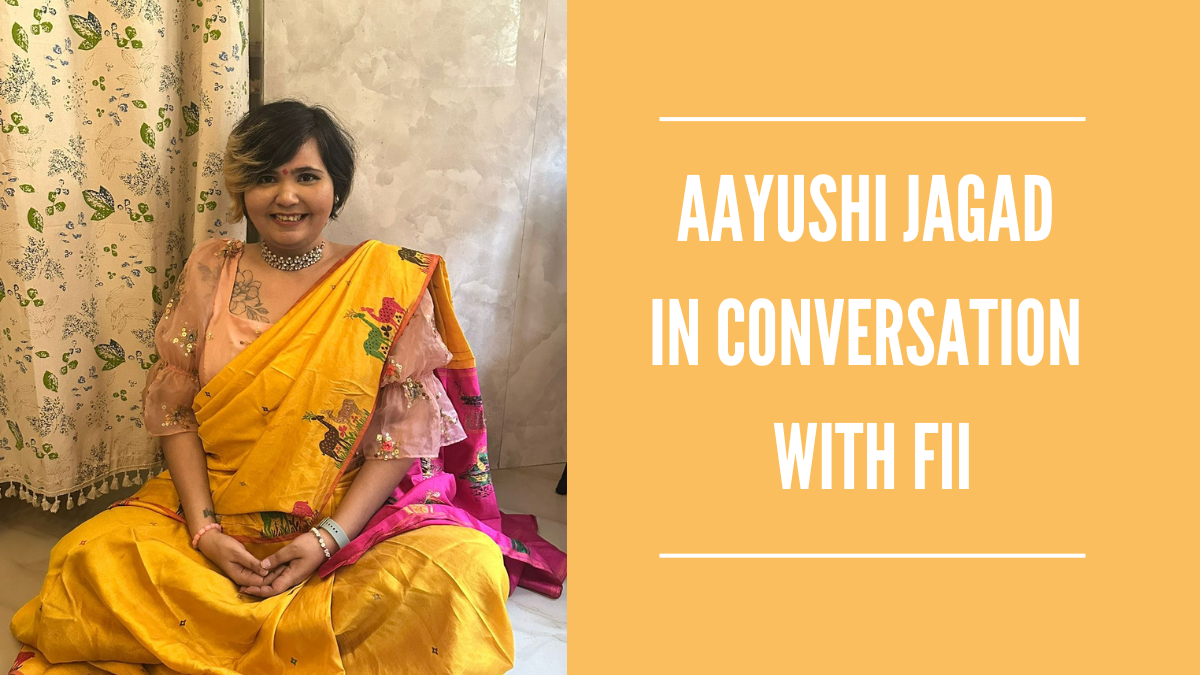Professor Sukhadeo Thorat is an economist and educationist and has been the former chairman of UGC. He is also a professor Emeritus at the Centre for the Study of Regional Development, Jawaharlal Nehru University and the former chairman of ICSSR (Indian Council for Social Science Research). He is also Chairman, of the Indian Institute of Dalit Studies, and the Institute of Social and Economic Change Bangalore.
In 2008 he was awarded the Padma Shree in the field of literature and education and is the recipient of the Ambedkar National Award (2011), by the Ministry of Social Justice and Empowerment, Delhi and the Ambedkar Ratna Award by the Government of Delhi in 2016.
He has authored about 30 books on caste and economic discrimination and has done extensive research on the economics of caste and its impact on poverty, caste and economic inequality.
His journey from a small village in Maharashtra to becoming an eminent academician is inspiring and in conversation with FII, Prof has reflected upon the same aspects and also on the issues of caste-based discrimination in higher educational intuitions in India.
FII: What inspired you to take up an academic career?
Prof Thorat: I think my vision and thinking were possibly shaped by early experiences of caste discrimination and the condition of untouchables in the village where I was born. Unknowingly these experiences motivated me to go for an academic rather than an active social and political career. I was born in a small village of about 70 households, of which about 1/3rd were untouchables, and the rest were the Kunbi (OBC), with no Brahman household. The locality represented typically an ancient Manu village with social segregation of untouchables, isolated by a small passage from the upper castes without many social relations with the upper caste.
Most untouchables were landless, marginal farmers, dependent on upper castes, as labourers, with long hours of work and low wages. Poverty, hunger, and malnutrition reflected in poor health and low life expectancy, they struggled for two meals a day, which had an imprint on my young mind, shaping and motivating me to understand their situation.
As a child, I experienced untouchability and social isolation. As I grew, I began to realise the limitations of my physical mobility. Once I happened to touch the upper caste well, the son of the head of the village caught hold of my neck and warned me not to come anywhere near the well reserved for upper castes.
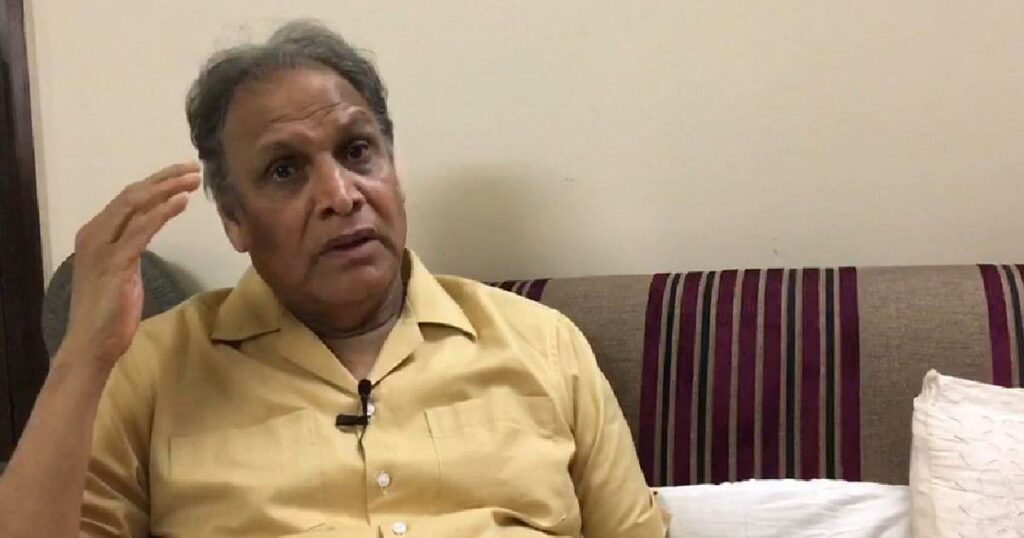
My early school education was a tightrope walk, as I could slip out at any time with the slightest slippage. The primary school was located in a temple, and the untouchables student were made to sit back at a respectable distance from the image of God and the upper caste students. After primary school and class 4th, I moved to three different Christian missionary schools, in 5th, 8th and 9th/10th standard, as they would provide education at a low cost.
Most untouchables were landless, marginal farmers, dependent on upper castes, as labourers, with long hours of work and low wages. Poverty, hunger, and malnutrition reflected in poor health and low life expectancy, they struggled for two meals a day, which had an imprint on my young mind, shaping and motivating me to understand their situation.
Professor Sukhadeo Thorat
For the 6th & 7th classes, I was admitted to a school 6 miles away from my village, which involved travelling for about 12 miles every day. With all ups and down and a serious chance of dropping out in 6th, 7th and 8th standard, I completed matriculation with first class in 1965. I entered Milind College in Aurangabad, Maharashtra for a Bachelor’s degree in 1965 the college established by Babasaheb Ambedkar, completed it in 1969 and later MA in 1972 in economics and finally PhD from JNU in 1985.
Life in an educational institution was not without experience of discrimination. The Milind College, which was set up by Dr Ambedkar in 1955, offered a relatively supportive atmosphere, partly because most of the students were Dalits in college. In the university, there was no such discrimination, except that I would feel depressed sometimes when I saw upper-caste students having affectionate relations with teachers of their social belonging.
At Jawaharlal Nehru University, I had a reasonably supportive atmosphere. However, some experiences during fieldwork for PhD in the villages in Maharashtra were equally scary. Since my surname “Thorat,” is found in all three castes (the untouchable, Maratha/Kunbi & Brahmin) the village farmers believed I was a Maratha and felt proud that I was doing a PhD.
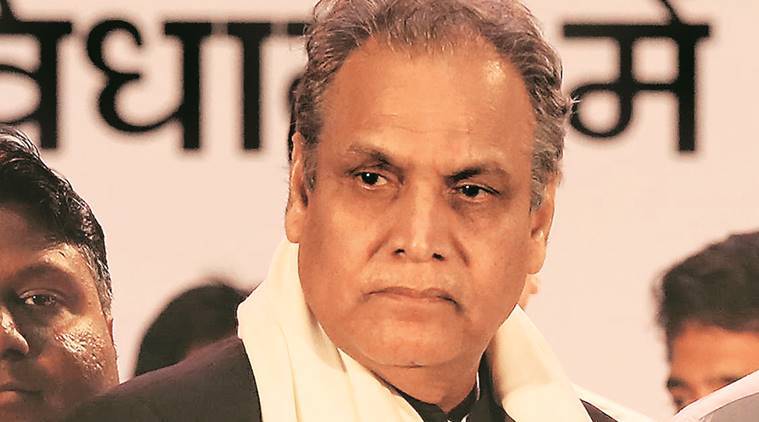
During one fieldwork, a disturbing incident happened in one of the villages. I happened to meet somebody who was my classmate, who shared my caste background with a prominent leader who then invited me to a family event and introduced me to about 30 people. He mentioned that he felt very proud that a Dalit student was pursuing a field survey in their villages and that this would bring some benefit to them. This disturbed me very much for the remaining part of the fieldwork.
So, despite of supportive atmosphere at JNU other students’ colleagues would share their experiences of caste discrimination in one or another form.
FII: How challenging was it for you as a Dalit academician researching the theme of caste-based discrimination? Do you think the situation has changed now or do you think the students still face discrimination?
Prof Thorat: I think that pursuing research on the issue of Dalit poverty and caste discrimination was a great challenge in the discipline of economics. The issue of poverty and caste discrimination against the Dalit in employment, farming and business troubled me and motivated me to search for an answer. Probably with this motivation, I had given the PhD topic on “Untouchability and its linkages with choice of occupation,” However admission was declined on the ground that there was no expert on economic aspects of untouchability.
The centre that admitted me for MPhil and PhD did not have courses, on group economic inequality, and economics of discrimination. Ultimately because of a lack of courses and experts on the issue of caste economic inequality and economics of caste discrimination, I was forced to do an MPhil and PhD in agricultural economics.
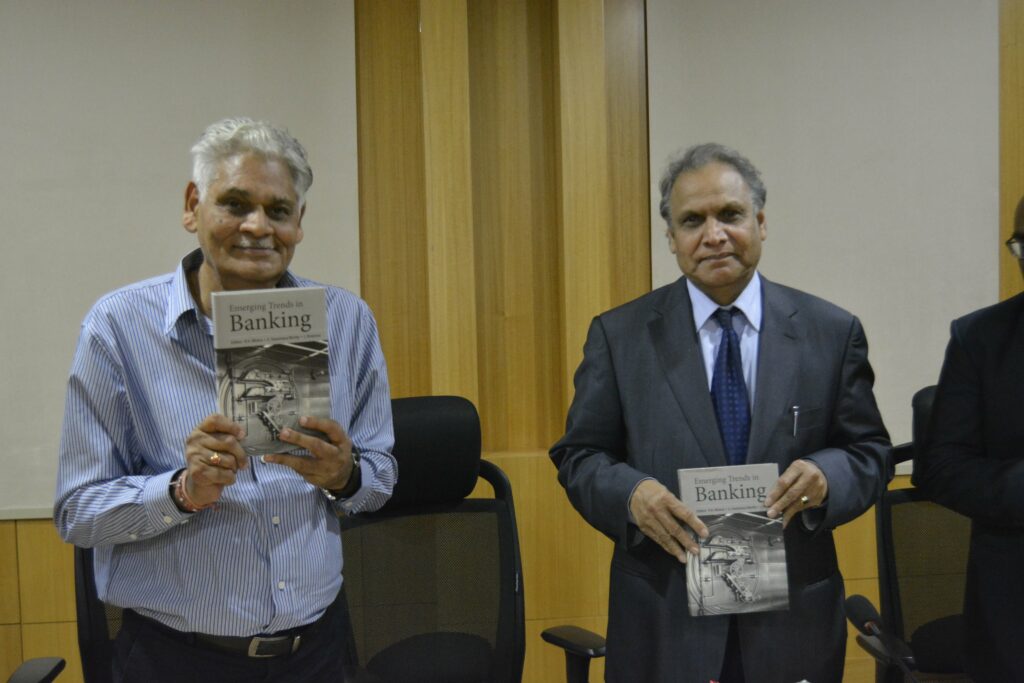
As faculty, however, I had a tough time writing research papers in general and on the issue of economic discrimination in particular and also offering a course on this theme. The period between 1980 to 1990 was most frustrating as I could not write a single serious research paper, mainly because of the lack of handholding by senior professors.
The other problem was a less supportive atmosphere to undertake research on Ambedkar and/or caste discrimination and to develop a course on this issue. I found a way out by offering a course on Institutional economics and started teaching the economics of the caste system and untouchability as an economic institution. The opposition to offering courses on Dalit and economic discrimination continues.
The breakthrough in my research on the economics of castes, group inequality and economic discrimination came during my two years stay in the US as a Post-Doctoral visiting faculty in 1989-1991, which exposed me to a massive literature on this theme. This provided me with a base to carry research on inter-caste economic inequality, economic discrimination and poverty of discriminated groups, which was facilitated by the Directorship of the Indian Institute of Dalit Studies in 2003.
FII: There have been more incidents of Dalit student suicides at IITs but the institute is in denial mode. You chaired the AIIMS committee. What do you think is the reason behind the discrimination in higher educational institutions in India? And what mechanisms do you suggest to have a check on this?
Prof Thorat: Caste Discrimination and prejudice in educational institutions are a reality. The same is proven by research conducted by the Indian Institute of Dalit Studies. Later Thorat Committee report, of 2008 brought out discrimination faced by SC/ST students in AIIMS. AIIMS report motivated other studies.
The study by NIEPA Delhi on the discrimination in state universities and colleges and Dr Sukumar’s study of six central and state universities provide evidence of discrimination faced by SC/ST students by other students, teachers and administrators, which at times takes an ugly form, humiliating the SC students by calling them names like “quota students,” and “Sarkar ke Jawai.”
First discrimination in higher education should be made a criminal offence and subject to punishment on the pattern of the Ragging Act. Second remedial classes be offered to Dalit, Bahujan and Adivasi students who come from rural areas both in language and core subjects and the third is sensitisation of upper caste students through a course, which is very important because the students learn about caste systems at home and in society and they come to higher education with the same attitude, particularly regarding reservations.
Prof Sukhadeo Thorat
And NIEPA’s study shows the humiliation of Dalit girls, by using derogatory remarks such as “quota se ho, ya kothese ho,” – this is the low level to which the upper caste students can downgrade themself. But most importantly the Survey conducted by SC/ST Cell of IIT Mumbai brings out the day-to-day humiliation and frustration of Dalit students, which is hurtful.
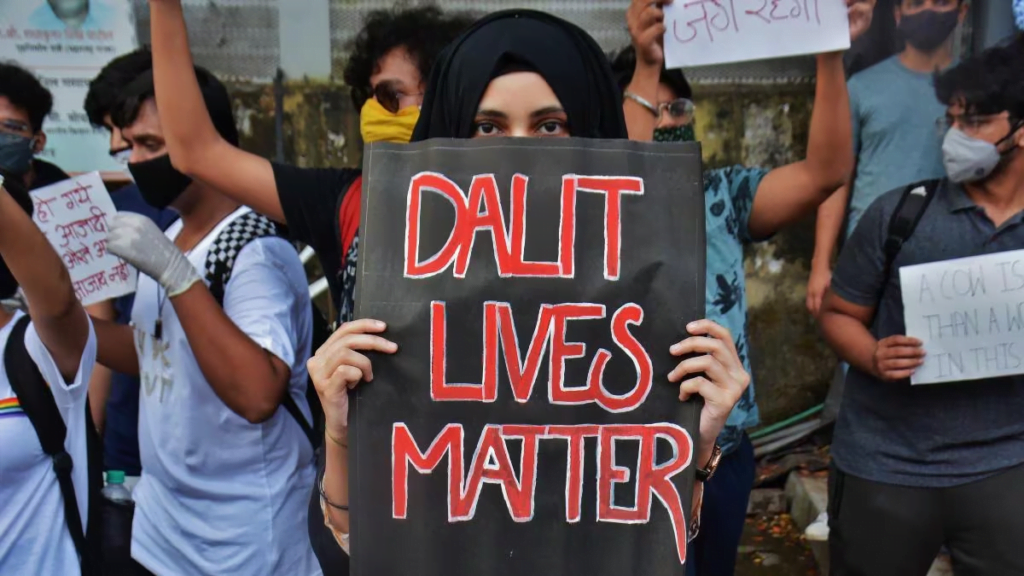
We should have an Act similar to that of the Ragging Act. So, my suggestion would be threefold. First discrimination in higher education should be made a criminal offence and subject to punishment on the pattern of the Ragging Act. Second remedial classes be offered to Dalit, Bahujan and Adivasi students who come from rural areas both in language and core subjects and the third is sensitisation of upper caste students through a course, which is very important because the students learn about caste systems at home and in society and they come to higher education with the same attitude, particularly regarding reservations.

I assume that discrimination is ever-present. It is irrespective of your economic standing or status. After I occupied the position as the chairman of UGC, a lady called me on the phone and said “Ab humara ye nasib hai, ki ek Chamar UGC chairman ke under hame kaam karna hoga.” (This is so unfortunate that now we will have to work under a UGC Chairman who is Chamar).
FII: Do you feel there is a difference in discriminatory practices in social sciences universities like JNU and DU and science and technology institutions like IITs and AIIMS?
Prof Thorat: Discrimination is everywhere but its nature may vary. In the case of JNU, there were very few reported cases of discrimination during my time. Because in JNU there are political organisations that are based on ideology, so Dalit and non-Dalit students come together and help each other but that is not the case with other institutes.
In AIIMS by rule, there is no residential segregation of students but once the upper caste students find out the background, SC students’ discrimination and harassment begins. At other institutes we have open segregation, an SC/ST hostel, Kayasth hostel, Hindu, Muslim and Christian Hostel at Allahabad University and Yadav Hostel in Bihar universities and SC/ST Hostel at Mysore University, to give some examples. We are not ashamed of segregating the students on caste and religious lines.
FII: What is your advice for the young researchers who are currently studying caste discrimination?
Prof Thorat: The Indian society is exclusionary which also extends to higher education campuses. Our government is insensitive and has done nothing. Recently the UGC took the same old steps, which are going to fail. Unless it takes the steps that include a Discrimination Act similar to that of the Ragging Act, remedial classes, for Dalit, Adivasi and other students and sensitisation of upper caste students through a course, to learn about discrimination associated with caste, colour and race.
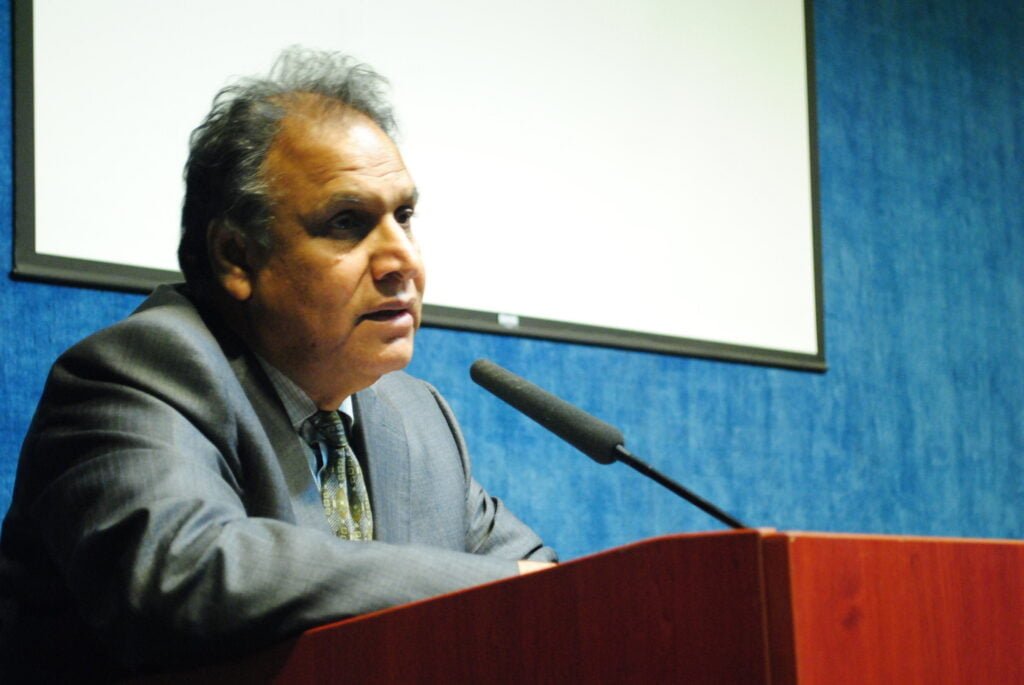
As far as the Dalit students are concerned my advice to them is that, they should recognise that they would invariably face discrimination in educational institutions in one form or the other. They should try to deal with discrimination as a group. Share with friends and build up courage and confidence. The academic journey of a Dalit student is not simple, they should deal with it as a group, and don’t fall prey to this victimhood.
About the author(s)
Preeti Patil is a learning enthusiast. She has completed her master's in Politics with a specialisation in International Studies from Jawaharlal Nehru University. She graduated in Electronics Engineering from RTMNU. Her area of interest is Gender studies, feminist security perspectives, Dalit feminism, Caste & diaspora & affirmative action policies.
